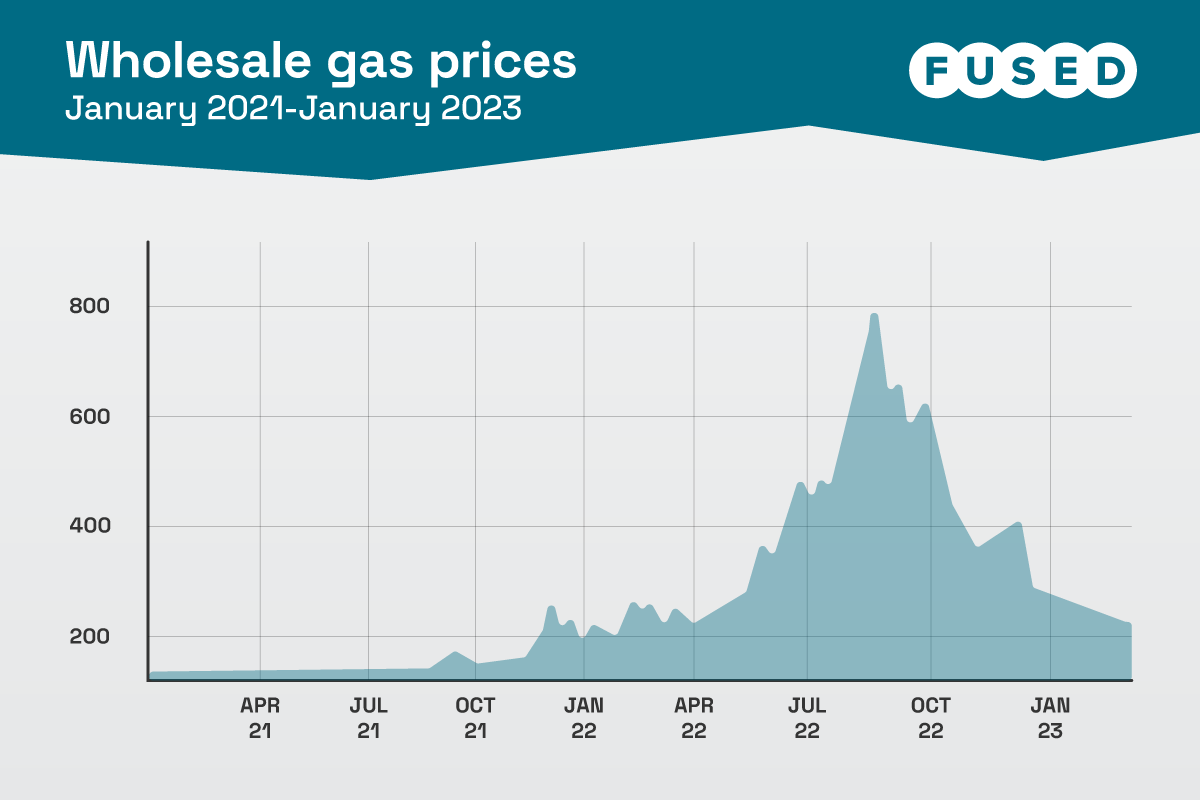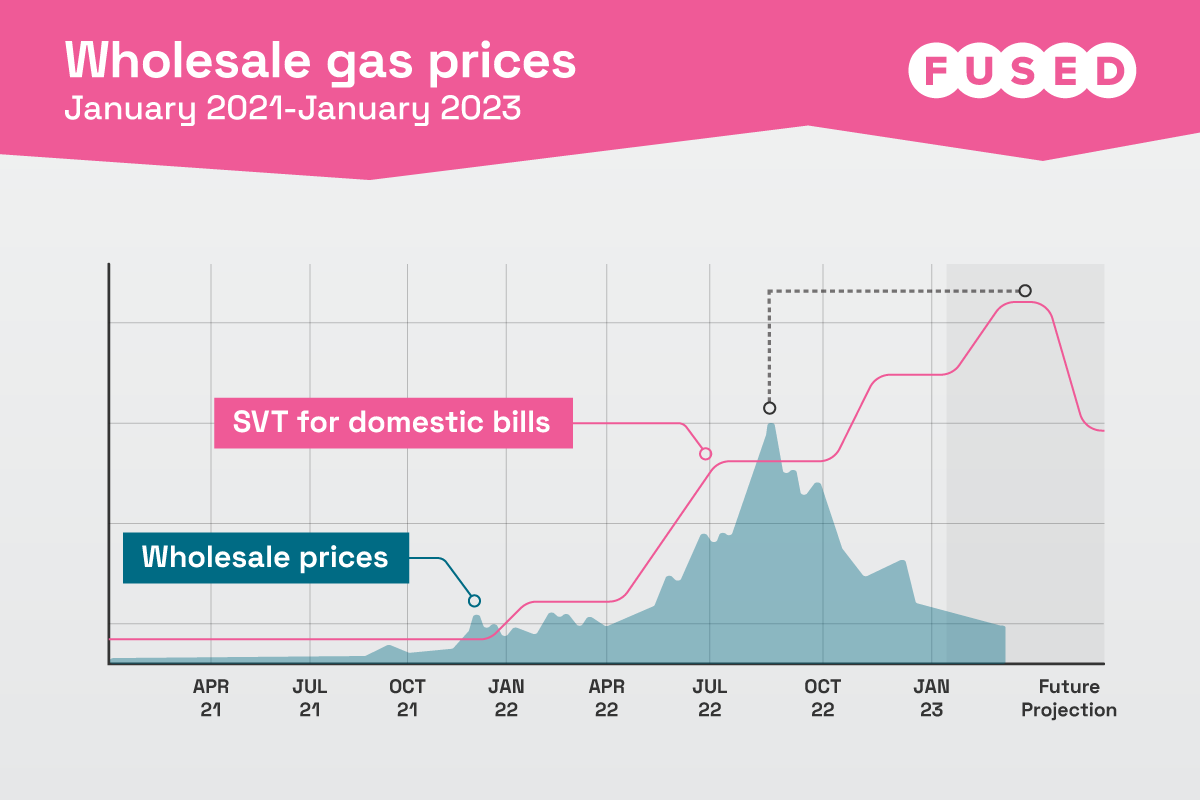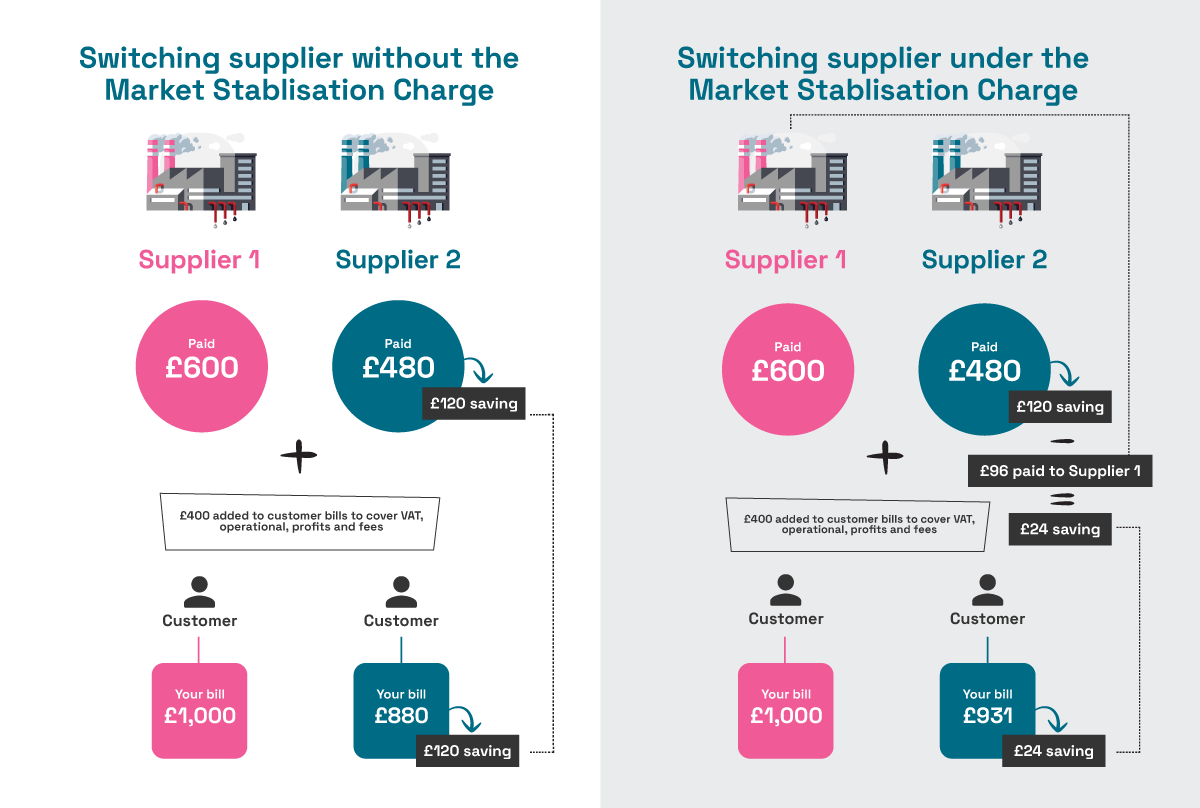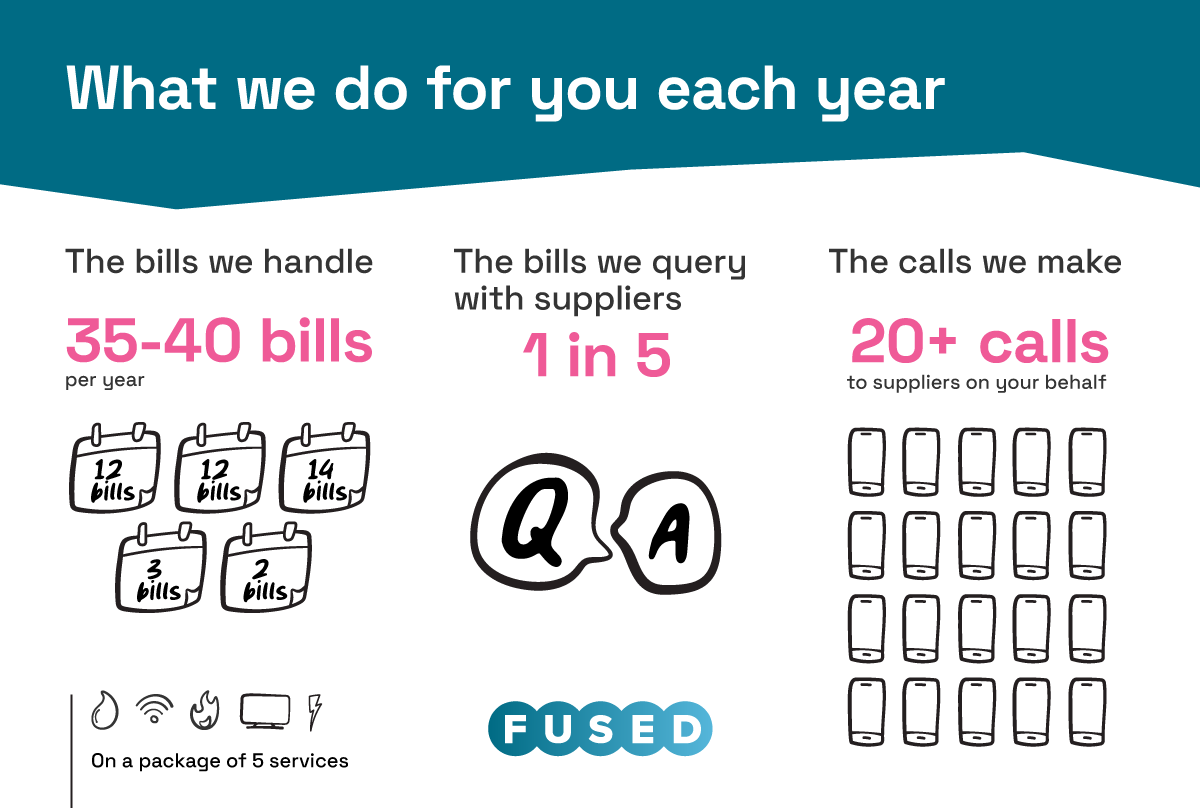As of February 2024, people in the UK are still paying significantly more for energy than they were a few years ago as a result of the energy crisis. Everybody deserves to know what's happening to their finances and why, so let's cover the main points (and some things you might not know).
Quick links:
What caused the energy crisis?
Why don't energy bills match wholesale prices?
Energy industry changes that affect prices
When will energy bills go down?
A quick recap of key energy crisis facts:
-
Energy prices became significantly higher during the energy crisis, for many reasons.
-
Prices were unaffordable, meaning many people faced ill health and the impossible choice between energy bills and other costs, like the food shop.
- The government intervened with new laws and financial support to reduce the impact of increased prices
-
Prices have stabilised, but are still higher than they were in Winter 2021/22
- The energy price cap also changes every three months, rather than every six months ago as it did previously, as a result of how rapidly prices changed during the crisis.
-
Wholesale prices for energy are lower now, but these decreases aren't immediately reflected in bills. There's an explanation of this below, just keep scrolling.
What caused the energy crisis?
The energy crisis was a global event with complex causes.
Here are some of the initial causes of the crisis:
- Lack of gas storage: In Winter 2021/22, gas storage across Europe was too low to meet demand. Lots of countries use gas stores to meet higher demand in Winter. In Winter '21, stored gas supplies couldn't meet demand after Russia reduced gas exports. Reduced supply from Russia meant gas supplies from elsewhere became more expensive.
- Calm weather: Less wind meant less power from wind farms in 2021. More fossil fuels were burned to generate power, which is a more expensive option.
- Major power cable shutdown: A fire at one of the UK’s major power cables in France shut it down. Energy from other sources became more expensive.
- War in Ukraine: Many countries placed sanctions against Russia after its invasion of Ukraine. Less Russian gas meant many European countries had to find alternate sources, making them more expensive.
- The pandemic: Demand fell at the beginning of the pandemic when everybody was in lockdown, but when restrictions were lifted demand increased sharply. Adjusting energy supplies quickly isn't an easy process, so prices went up.
All of these issues affected wholesale energy prices, i.e. how much it costs for energy suppliers to buy the energy they supply to you.
Suppliers pass increased costs onto consumers, but the way that most energy suppliers buy their energy means that the increase in costs to customers comes a few months after the increase for suppliers.
On top of this, there's some new legislation to stabilise the energy industry that makes the situation more complicated.
Why don't energy bills fall at the same rate as wholesale prices?
Wholesale gas has recently gotten cheaper than it was during the crisis. You can see how steeply it fell in early 2023, the beginning of lower prices. A milder winter than expected in 2023 reduced pressure on gas storage, which meant energy companies can pay less for energy. This trend has continued since.

Lower prices are good news, but the impact on bills isn't immediate. Here's a rundown of why:
- Energy suppliers buy energy in advance to make sure they can meet demand. This is called hedging.
- E.g. In Jan 2024, most suppliers have already bought energy up until Summer 2024.
This approach means that there's always enough to meet customer demand so the supplier can stay in business.
- It also means that suppliers have to charge the price they paid for energy to stay in business, even if wholesale prices drop afterwards.
- If what they need to charge is more than the energy price cap (Standard Variable Tariff) the supplier would need to take the loss.
30+ energy suppliers went out of business in 2021 because they didn't buy their power in advance and rising wholesale gas prices caught them off guard. When prices increased sharply, they had to buy energy at a price higher than their customers were paying for it. This is obviously not sustainable, so a lot of businesses went under as result.
Predictions by industry analysts, Cornwall Insight, for this coming year suggest a drop in prices in April and July 2024, and a slight increase in October.
Check out our Energy Price Cap blog for more detail.
Here's the same graph as above with some of this extra detail:

Energy industry changes that affect prices
In addition to the ways suppliers buy energy, Ofgem introduced new rules during the crisis to make sure companies don't go out of business when prices drop. One of these was the complex Market Stabilisation Charge.
The Market Stabilisation Charge will end on March 31st 2024.
The charge is activated when wholesale energy costs fall 10% below the current SVT. The charge has been triggered a few times since Autumn 2022, and is reviewed weekly by Ofgem, the energy regulator.
- The charge is paid by your new energy supplier if you switch to them for a lower price. Your new supplier pays around 80% of the price difference to the old supplier as compensation for the lost company.
- This essentially means customers are charged for higher energy prices, even if their new supplier bought energy for less.
This isn't the most straightforward system, so here's an example.

When will energy bills go down?
Check out our updates on the Energy Price Cap for the most up-to-date detail on upcoming energy prices. As of Feb 2024, prices are due to come down in April and July, before a slight increase in October.
How your Fused package fits in
When you signed up with Fused you trusted us to manage your bills. Making things easier isn't always straightforward during an energy crisis, but here's what we deal with for an average package behind the scenes:

It’s our job to manage bills for you. We’re the experts who deal with all your bill-related challenges and if you need support or have questions about your student bills package, we're the ones to speak to.





